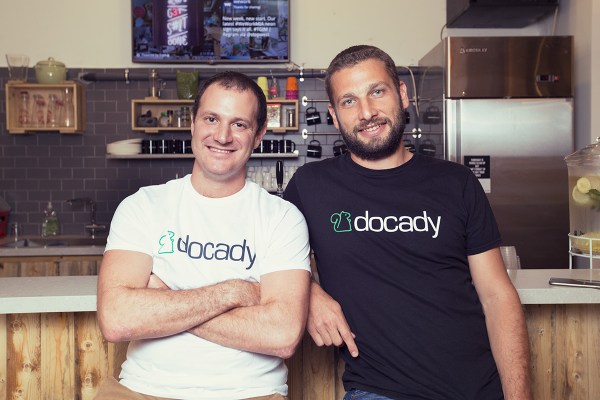Docady, an iOS app that lets you store and manage all your important documents, has been doing well in the App Store since its official launch in mid-July, including being featured by Apple as a ‘best new app’ for the last few weeks. And to help continue with that momentum, the Tel Aviv-based startup has just closed a $1.5 million funding round.
Investors include Pitango Ventures, and Disruptive, the VC fund from Tal Barnoach, Eilon Tirosh and various unnamed former AOL video execs. The new investment will be used to bring the app to more platforms, with Android up next, and for the development of additional ‘smart’ features to make your documents work harder for you.
“Our aim is to solve a very specific problem very well – making users’ lives easier, firstly by giving them instant and secure access to their important documents whenever they might need them, and secondly, by making those documents really work for the user,” Docady founders Nadav Naaman and Nadav Weizmann told me in an email.
“Technology has transformed and disrupted almost every other industry out there, but despite the fact that bureaucracy and paperwork are an important part of everyone’s lives, the systems for dealing with them haven’t really changed. Digitization is just the first step – with Docady we want to provide the most comprehensive mobile document experience, from scanning and access, to secure storage, to optimizing the process of handling things like renewing your car insurance.”
The app’s basic features include the ability to connect to various cloud storage services so that you can import important documents, as well a document scanning feature using your phone’s camera. It neatly provides presets for various different types of document, such as one for credit cards.
However, it’s Docady’s existing and forthcoming ‘smart’ features that attempt to differentiate the app from potential competitors or simply backing up your documents to a secure cloud storage service manually. The idea is that the app will be able to make sense of the different kinds of data featured in each document to help with things like reminders for when a document needs to be renewed or action taken.
“Currently, people can scan their documents with one app, store them with other cloud services, or email scans to themselves. As these are plain images of documents, however, they can’t ‘communicate’ with the user to tell them that something – like a renewal – requires their attention,” say the app’s founders.
“If someone is very organised, they can set reminders to themselves of upcoming deadlines. But more often than not we’re all caught out in unexpected or frustrating situations when we desperately need a copy of our child’s immunization records or are late with renewing our driver’s license. Docady solves both those problems, giving users instant access to all their important documents on the go, as well as processing those documents to extract the important information and keep users notified of upcoming deadlines.”
The basic Docady app is free and will remain so, with monetisation coming in the form of premium or related services that aim to remove some of the hassle of managing our document-related lives and going beyond simple renewal reminders, such as the ability to renew a driving license or shop for home insurance.
“We’re planning to partner with relevant financial, insurance or governmental services to enable ‘one-click bureaucracy’. Behind every document is an entire marketplace of services which users need, and we’re positioned to be the platform that gets them the service they need when they need it.”
Naaman and Weizmann’s backgrounds are noteworthy too. The former previously worked at PayPal for several years, where he most recently headed up the payment company’s mobile applications group, before serving as a VP Product at LivePerson. Meanwhile, Weizmann spent several years managing various R&D and security teams in a special IDF unit before becoming the first employee of mobile data company Onavo before it was sold to Facebook in 2013.
